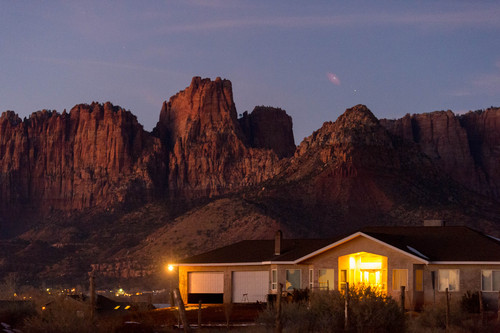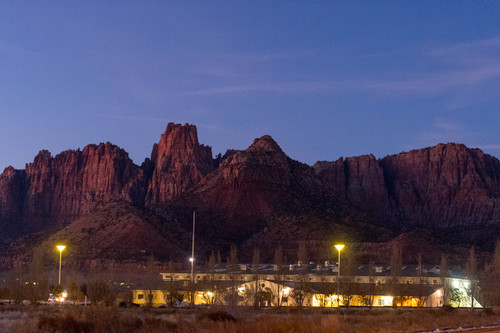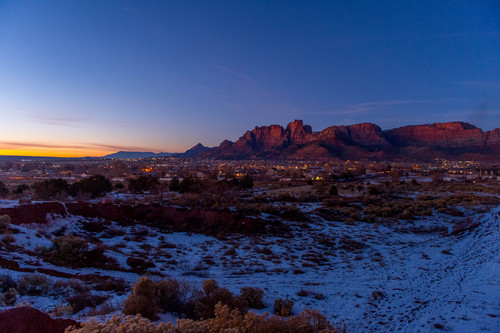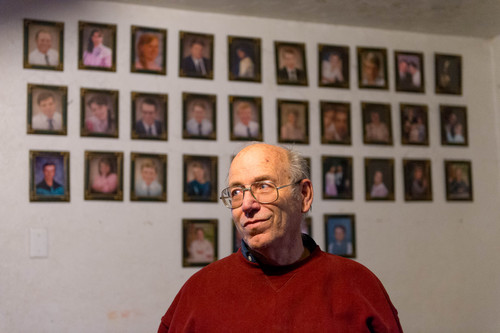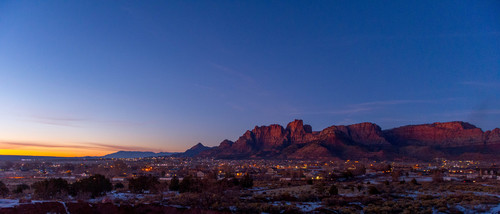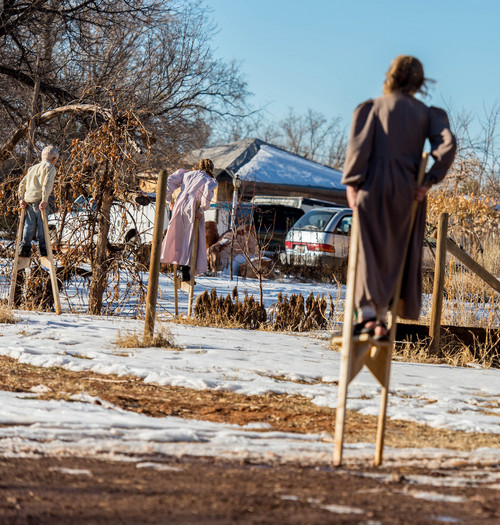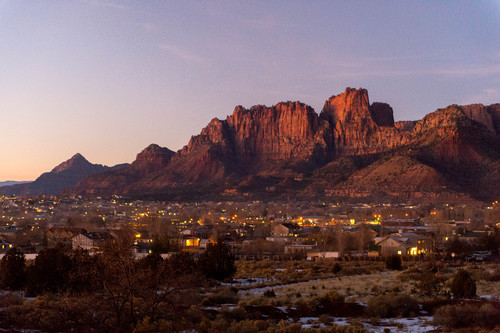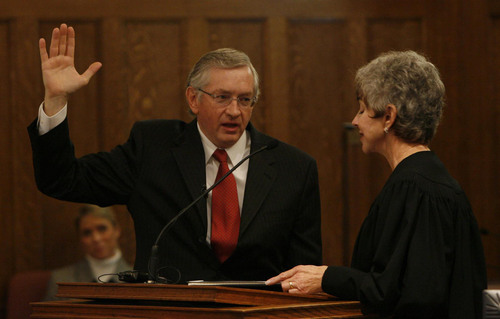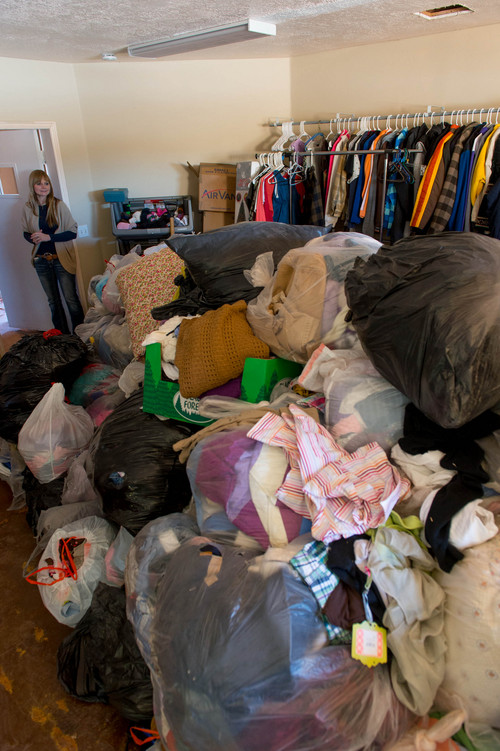This is an archived article that was published on sltrib.com in 2013, and information in the article may be outdated. It is provided only for personal research purposes and may not be reprinted.
Hildale • The epicenter of Utah polygamy was quiet Saturday, blanketed with rare snow and seemingly unaware of or unconcerned with the historic court ruling that one day earlier effectively decriminalized plural marriage.
The decision, handed down Friday evening by U.S. District Court Judge Clark Waddoups, struck down a Utah law equating cohabitation to polygamy. The law was the primary instrument available for prosecutors to use against polygamists in Utah, where fundamentalist Mormons performed religious but not legal marriages between one man and multiple women.
After learning of the ruling Saturday afternoon, Marvin Wyler exclaimed "hallelujah" and said polygamy never should have been criminalized in the first place. Wyler — who left The Fundamentalist Church of Jesus Christ of Latter-Day Saints more than a decade ago but continues to believe in polygamy — said that in the past polygamists feared legal repercussions for their criminalized lifestyle. The ruling lifts that threat — which surprised Charlette Wyler, a wife of Marvin's.
"Wow," Charlette said. "I didn't think that would ever really happen."
But Marvin Wyler also doubted the new court ruling would have a major impact on Hildale and adjacent Colorado City, Ariz., collectively known as Short Creek. He didn't know of the ruling until Saturday afternoon — hours after a polygamous wedding happened in the town — and life would likely continue for most people as usual.
"It won't be any different," he said.
The limited impact of the ruling was the theme of the day in the community, which seems to have learned to live without much attention to bigamy laws.
At the Colorado City Community Center, a facility run by Holding out Help, director Ruth Olson hadn't heard of the ruling and was busy prepping the facility — which provides food and clothing for people in the community — for an upcoming Christmas party.
Olson wasn't alone. Lorin Holm lives in the area but was traveling Friday night and saw news of the ruling on a hotel TV. He was pleased, but said most people he had talked to also hadn't heard about it.
Holm explained that many people in Short Creek don't have TVs, and even those who recently left the FLDS only get Netflix subscriptions. That meant many people remained in the dark Saturday about the historic change to their legal status.
And like Wyler, Holm also said the ruling likely wouldn't have a major impact in the community.
"It's probably not a big deal for them," he said of the practicing polygamists in Short Creek. "They won't even care."
Though a monogamist today, Holm said he didn't worry much about the criminalization law when he practiced polygamy in the past. Others in the community learned to similarly move on because prosecutors generally chose not to press charges against practicing polygamists.
Dan Timpson also lives in the community and expressed joy at the ruling. He called it wonderful and said he had discussed it over coffee that morning with friends. However, much like Holm, Timpson said he wasn't especially worried about the illegal status of polygamy.
"We weren't worried," he said. "We always believed that someday it would be overturned."
Timpson also wondered what would happen with the mainstream Mormon church, which disavowed polygamy more than a century ago. But in the immediate future, Timpson, like others in the community, thought change would be minimal and slow,
"I think it'll be the same but you don't have to worry," he said.
As the sun set Saturday night behind a distant bluff, the air became cold and still. Smoke from distant fires drifted upward as two boys passed on brown horses. It was a night just like any other in Short Creek.
Twitter: @jimmycdii —
State pondering how to proceed
Gov. Gary Herbert on Saturday said he had not had a chance to review Waddoups' ruling, but said his legal counsel would determine what the ramifications are.
"I'm always a little concerned when we have decisions that change public policy by the courts," Herbert said. "I'd much rather see decisions on social issues come from our Legislature representing the will of the people. So I'm a little bit jaundice-eyed, but I need to understand the arguments and logic and what the ramifications of this decision really will be for Utah."


